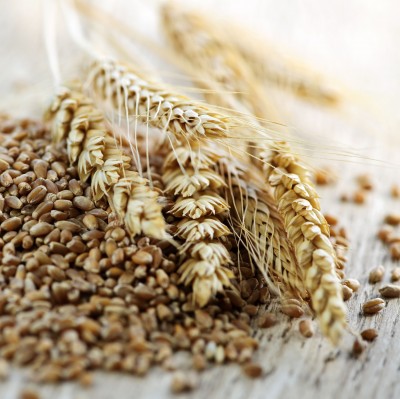The Sweet Truth on Carbs and Fiber
 Carbs, friend or foe?
Carbs, friend or foe?
Carbohydrates are the topic of a lot of nutritional literature, the focus of diets and research, but what are carbohydrates really? They are in fact sugars. All types of carbohydrates are broken down in our body into a simple sugar called glucose, which can be used for energy and movement. Carbohydrates contain 4 calories per gram. It is recommended that 45-65 percent of calories come from carbohydrate sources although it is important to choose high quality natural carbohydrate foods. There are many ways to classify and categorize carbohydrates, simple and complex, sugars, starches, and more, but for purposes of healthy eating, we will break them into two categories of refined, and natural carbohydrates.
Refined Carbs:
Refined carbohydrates are sugars broken down into their simplest form through processing and are basically pure calories with little or no nutrition. Examples of these types of sugars that you might see on a nutrition label are high fructose corn syrup, sugar, brown sugar, corn sweetener, corn syrup, dextrose, fructose, fruit juice concentrates, glucose, invert sugar, lactose maltose, malt syrup, and molasses. Another common form of refined carbohydrate is white breads and pastas. These too have much of the natural nutritional value stripped away in processing. These un-natural sugars and are very easily digested by the body. This means that we are taking in calories very quickly. If we are not also rapidly burning these calories, they will likely be processed into body fat. It is especially important for people with diabetes to be aware of the simple sugars they take in as they can quickly effect blood sugar. Because refined carbohydrates are processed quickly, we often feel a surge of energy soon after consuming them. As sugars are processed, this energy soon fades and is usually followed by a period of low energy, which can sometimes cause cravings for more refined sugars.
Natural Carbohydrates:
While many natural carbohydrate sources are also digested quickly, many are digested very slowly, which will give our bodies the opportunity to burn the calories we have eaten rather than processing them into body fat. Unlike refined carbohydrates, natural carbohydrate foods are also likely to contain other healthy nutrients like vitamins and minerals as well as fiber. Whole plant food carbohydrate sources include fruits, vegetables, beans and legumes, and whole grains like brown rice, bulgar, wheat, oats, millet, buckwheat, and others. Because natural carbohydrate sources generally are slower to absorb because of the fiber they contain, they also help sustain consistent energy levels with less highs and lows.
Fiber:
Fiber is an important nutrient that aids in keeping digestion and bowl movements regular, slows the absorption of sugar, and even binds to cholesterol, possibly aiding in keeping cholesterol low. Many people do not consume enough fiber. 25-35 grams of fiber is recommended daily.
Carb Tips:
- Read the ingredients label to check for added sugar
- 45-65% of daily calories should come from natural carbohydrate sources
- Choose vegetables and fruits as your first pick as carbohydrate sources
- Drink water instead of sweet drinks
- Skip deserts with added sugar and try fresh fruit salad
- Select whole grain options whenever possible
- Choose breads and cereals without added sugar
Browse our Merchant Directory to include the assistance of a Nutrition expert, Personal Trainer, Holistic Health Services, Lifestyle Coach, or to find Healthy Food options.
Sources: Michael Pollan In Defense of Food, WebMD, CDC
Author: Tony Montijo, BS Kinesiology, CPT, CES






